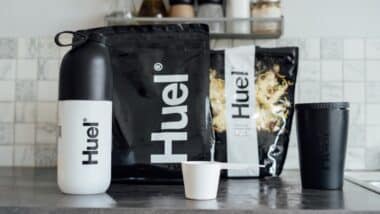 GE Capital Retail Bank is facing a new Telephone Consumer Protection Act (TCPA) lawsuit, from a New Jersey woman alleging the bank had allegedly used an automated dialing system to make spam calls.
GE Capital Retail Bank is facing a new Telephone Consumer Protection Act (TCPA) lawsuit, from a New Jersey woman alleging the bank had allegedly used an automated dialing system to make spam calls.
Also called Synchrony Bank, the GE Capital TCPA lawsuit alleges the bank began calling the claimant’s cellphone number and continued to place calls even after being told to stop.
Plaintiff Davi K. is filing the GE Capital TCPA lawsuit, claiming the company called her cellphone to try to collect on an alleged consumer debt.
The calls began coming in during early 2015, during which an automated voice could be heard when answered. According to the GE Capital TCPA lawsuit, Davi demanded the company cease contacting her during a call that took place in March 2015.
Even though Davi clearly stated she did not want to be contacted, GE Capital reportedly continued to place unwanted calls to her cellphone while allegedly using an automated dialing system.
It is important to note that at no point before or after the calls were placed to Davi, did she give GE Capital permission to contact her nor were the calls made for emergency purposes. Davi is filing the GE Capital TCPA lawsuit alleging multiple violations of federal law.
Overview of TCPA Policy
The Telephone Consumer Protection Act was passed in the early 1990s, in order to help protect consumers against aggressive telemarketing practices. Under the TCPA, companies cannot contact consumers during certain hours of the day.
Furthermore, companies are prohibited from using an automated dialing system to contact consumers for marketing purposes. Automated dialing systems are often used to randomly generate or look up phone numbers, with an artificial voice often responding if a consumer answers a call.
Using an automated dialing system is illegal under the TCPA, requiring all operators to be able to identify themselves along with the companies they represent. In addition, consumers who ask not to be contacted must be placed on the company’s do-not-call registry for the next five years.
Companies found to be in violation of the TCPA can be charged between $500 to $1500, depending if the company is found to be in willful violation. Davi is filing the GE Capital TCPA lawsuit against the company seeking compensation for the alleged spam phone calls.
The GE Capital TCPA lawsuit is Case No. 1:16-cv-05773, in the U.S. District Court of New Jersey.
Join a Free TCPA Class Action Lawsuit Investigation
If you were contacted on your cell phone by a company via an unsolicited text message (text spam) or prerecorded voice message (robocall), you may be eligible for compensation under the Telephone Consumer Protection Act.
ATTORNEY ADVERTISING
Top Class Actions is a Proud Member of the American Bar Association
LEGAL INFORMATION IS NOT LEGAL ADVICE
Top Class Actions Legal Statement
©2008 – 2025 Top Class Actions® LLC
Various Trademarks held by their respective owners
This website is not intended for viewing or usage by European Union citizens.















One thought on GE Capital TCPA Lawsuit Filed by NJ Woman
Question I keep getting calls asking me about student loans spam calls as well as homeowner call problem is I don’t have student loans and I don’t own a home what can I do about this